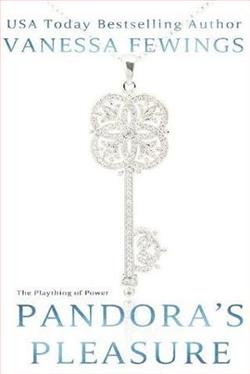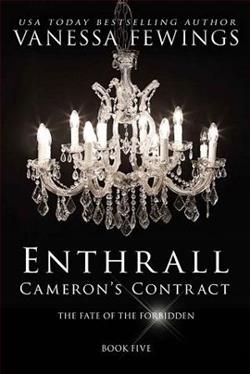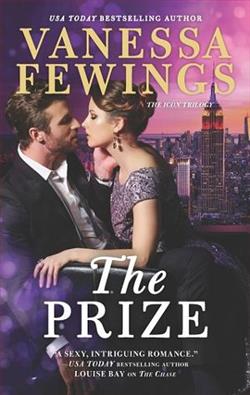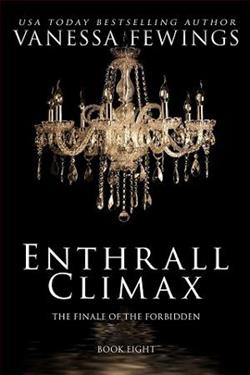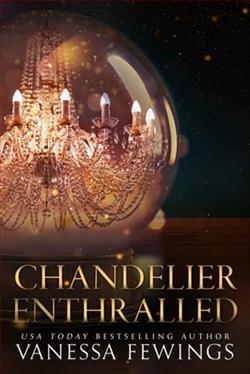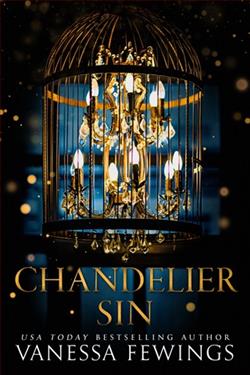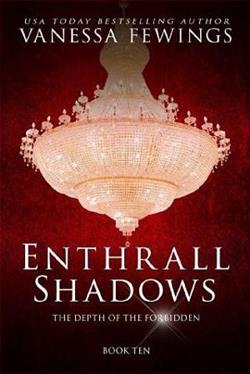Page 40 of Royal Love
The applause is deafening, but it’s the silent tears on young faces that tell me our words have found their mark.
Later, as the auction concludes and the final donations are tallied, I find myself seated at a table surrounded by children ranging from five to fifteen. My feet have indeed begun to protest the evening’s demands, and I’ve discreetly slipped off my heels beneath the tablecloth.
“Is it a boy or a girl?” asks a small girl with solemn eyes and braids tied with blue ribbons.
“I don’t know yet,” I answer honestly. “What do you think it is?”
She considers this with surprising seriousness. “A boy. Kings need sons.”
From across the table, an older boy shakes his head. “That’s old-fashioned thinking, Elise. The queen could have a daughter who becomes the next ruler.”
I smile at him, grateful for the progressive viewpoint. “That’s absolutely right. Haldonia’s constitution was amended before I married Tristan. Our child will be heir regardless of gender.”
The conversation shifts to names, nursery colors, and whether the baby might have my eyes or Tristan’s. These children, who have experienced loss beyond their years, still retain the capacity for wonder and curiosity that makes my heart ache with tenderness.
When Tristan finds me, he’s accompanied by General Mercer, his father’s most trusted military adviser and one of the few cabinet members retained after the coronation.
“Your Majesty,” Mercer bows slightly. “You’ve captivated your subjects. The little ones haven’t stopped talking about you.”
“They’re remarkable children,” I reply, meaning it. “Resilient in ways I can barely comprehend.”
As we exchange pleasantries, I notice Tristan’s gaze continually drifting toward the exit. The subtle tension in his jaw tells me he’s reaching his limit for public interaction tonight.
“I believe we should be going,” I announce, allowing Tristan to help me to my feet. “The baby seems to think my ribs make an excellent punching bag tonight.”
The general laughs, offering congratulations once more before Parker materializes to coordinate our departure.
The goodbyes take another thirty minutes—handshakes, promises to follow up, expressions of gratitude—before we finally make our way through the service entrance to where our vehicle waits.
The night air feels glorious after hours in the crowded ballroom. I inhale deeply, savoring the cool September breeze as Parker opens the door to the Range Rover.
“Successful evening,” I comment as Tristan slides in beside me.
He loosens his collar, exhaling slowly. “The foundation exceeded its funding goal. Parker says the initial social media response is overwhelmingly positive.”
“And you connected with them,” I add, taking his hand. “The children, I mean. They saw you, not just the crown.”
His thumb traces circles on my palm, a gentle, absent gesture that speaks of comfort and familiarity. “You were the star tonight. ‘The queen’s maternal glow’ will dominate tomorrow’s headlines.”
“God, I hope not,” I groan, settling back against the leather seat as our driver navigates through the museum’s service exit. “I’d rather they focus on the record donation amounts.”
The route back to the palace is familiar—first the cultural district, through the diplomatic quarter, past Parliament Square before entering the palace grounds through the eastern gate. But tonight, as we approach the central boulevard, I notice Parker shift in the front passenger seat, his posture suddenly alert.
“Sir,” our driver’s voice carries an edge I’ve rarely heard. “There’s unusual activity ahead.”
Through the tinted windows, I can make out a gathering crowd near the square. Banners and signs wave in the darkness, illuminated sporadically by streetlights and the harsh glow of smartphone screens.
“Protesters,” Parker confirms, already on his phone. “Security wasn’t expecting this tonight. They’re mobilizing units from the palace now.”
“What are they protesting?” I ask, leaning forward to better see.
Tristan’s hand on my arm pulls me gently back. “The war,” he says quietly. They’re still angry that we fought back. The people out here want nothing more than peace.”
My stomach clenches with understanding. The Children of Heroes gala, while well-intentioned, would be seen by some as glorifying a conflict many believed unnecessary. The timing suddenly seems tone-deaf, despite the months of planning.
“We should go around,” Parker instructs the driver. “Take Parliament Road to?—”
His words cut off as our vehicle slows dramatically. Through the front windshield, I can see that the road ahead has been blocked by a makeshift barricade—trash bins, bikes, and what looks like construction materials dragged from a nearby site.








